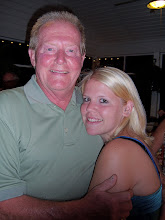- Anger—we tend to get angry with other people, ourselves, or just angry in general. It just does not seem fair that some one close to us died and we don’t know why they had to leave so soon. Eventually you will begin to realize that the world is not out to get you and the anger will subside.
- Bargaining—sometimes we try to bargain and say that we will give up something in our lives to get that loved one back.
- Guilt—we may feel guilty for things that we did or did not do prior to the loss. We might also start to blame ourselves for what has happened, even though it wasn’t our fault at all
- Depression—at first you might experience a sense of great loss. After that mood fluctuations might occur. Feelings of isolation and withdrawal may follow. It will take awhile to return to your old self, it is normal.
- Loneliness—as you go through changes in your social life due to the loss, you may be lonely and afraid. You might get afraid that some one else close to you might die as well.
- Acceptance—you finally start to accept the reality of the situation, however, this does not mean happiness
- Hope—eventually it won’t be so painful remembering what happened and the memories you shared with that loved one and you can begin to move on and look at the future for good times.
Some things that you could do to help resolve this process may include: allowing time to experience thoughts and feelings openly to yourself, acknowledge and accept all feelings (both positive and negative), use a journal, confide in a friend, express your feelings openly (crying offers a release), resolve unfinished business, join a bereavement group, or go to counseling. Some actions that could hinder the healing process involve using drugs or alcohol to self-medicate, over function at work to avoid feelings, and avoiding or minimizing your emotions.

No comments:
Post a Comment